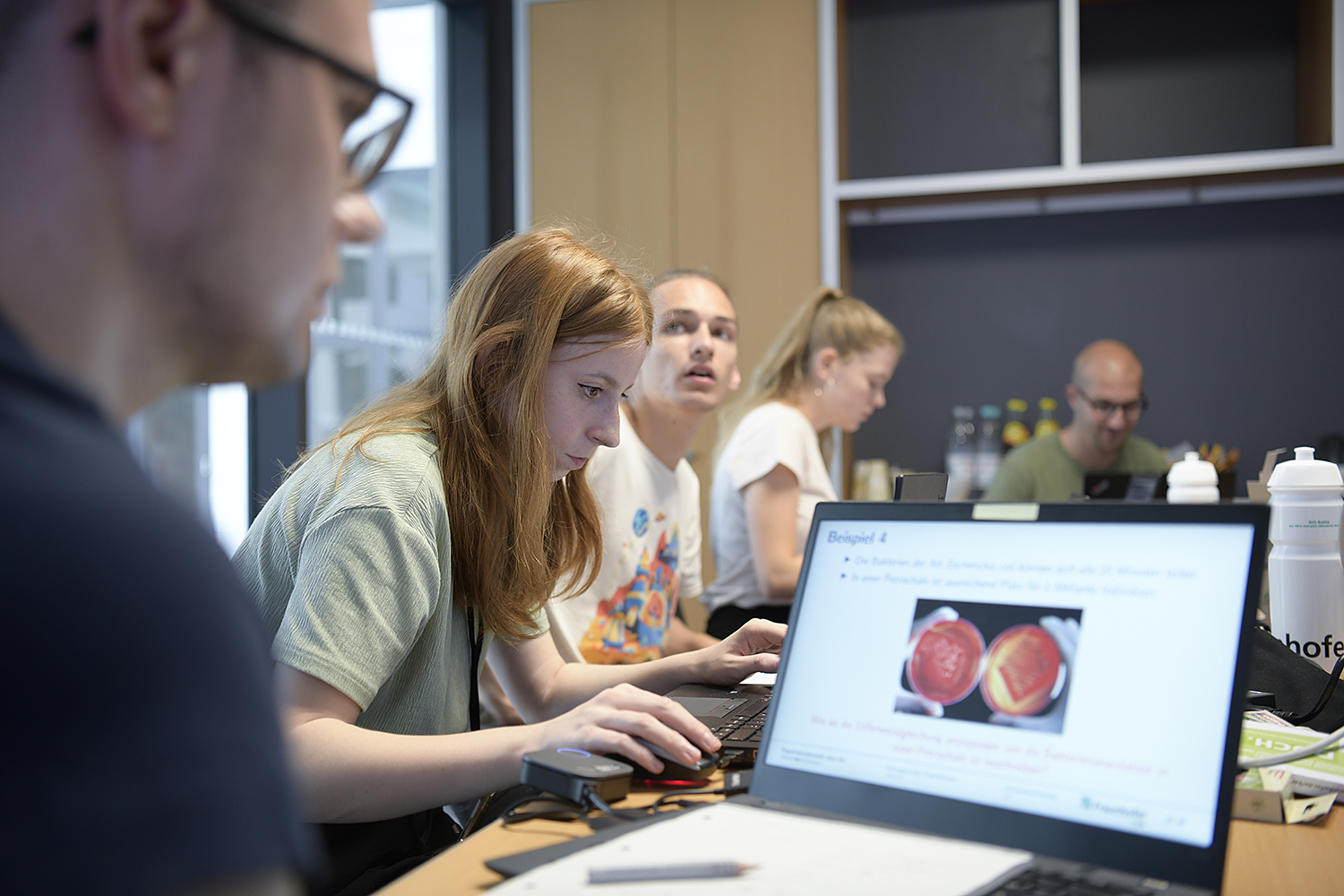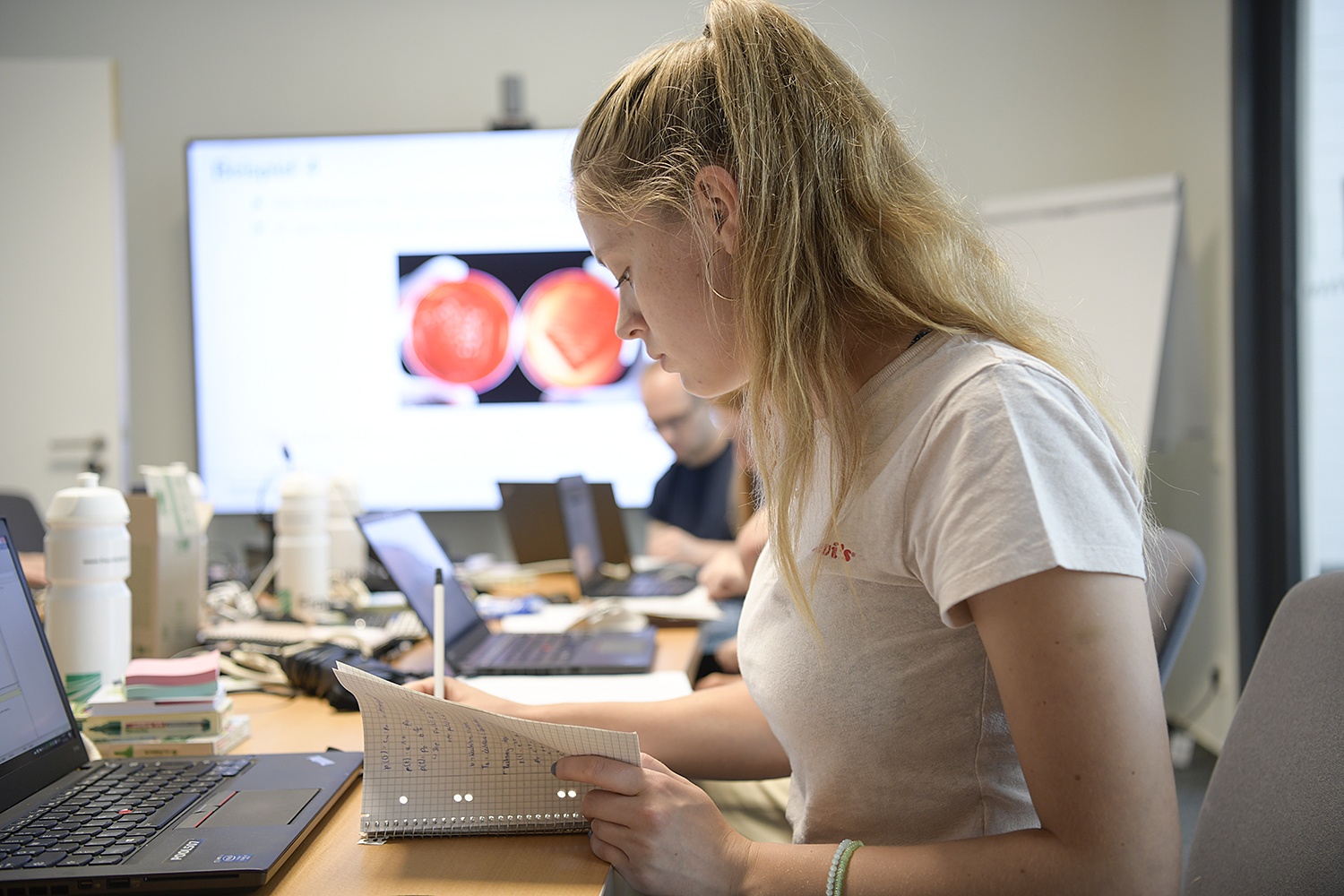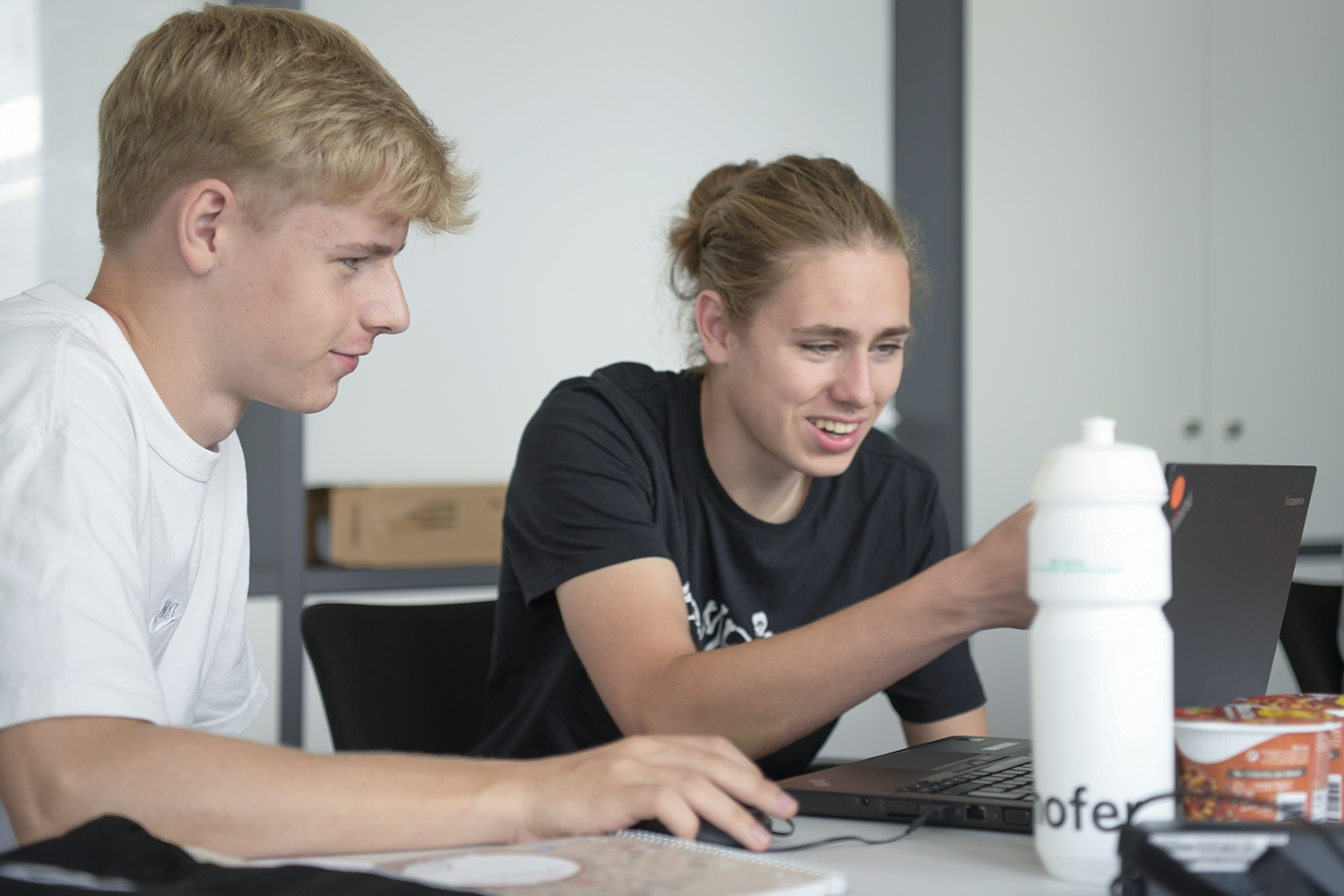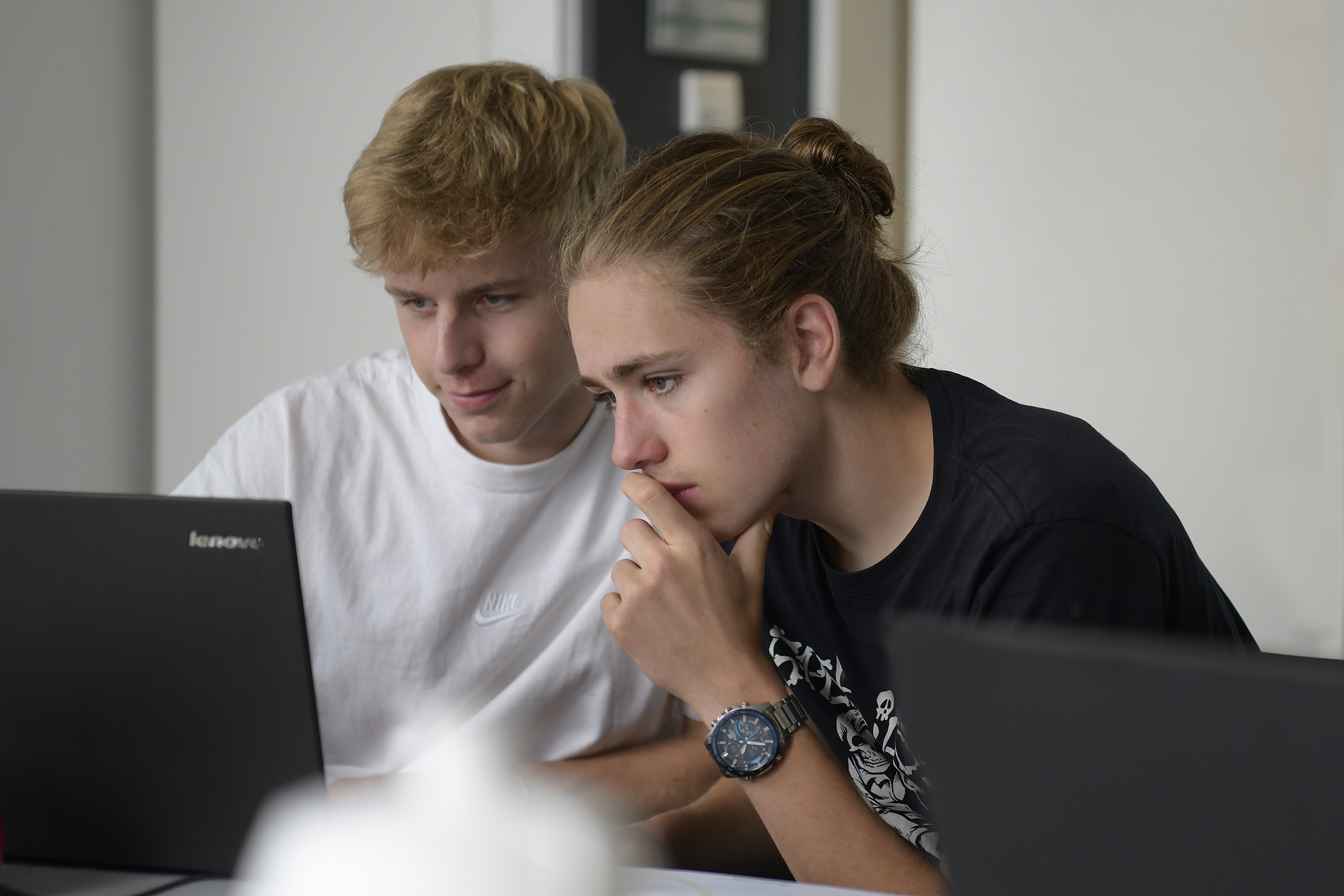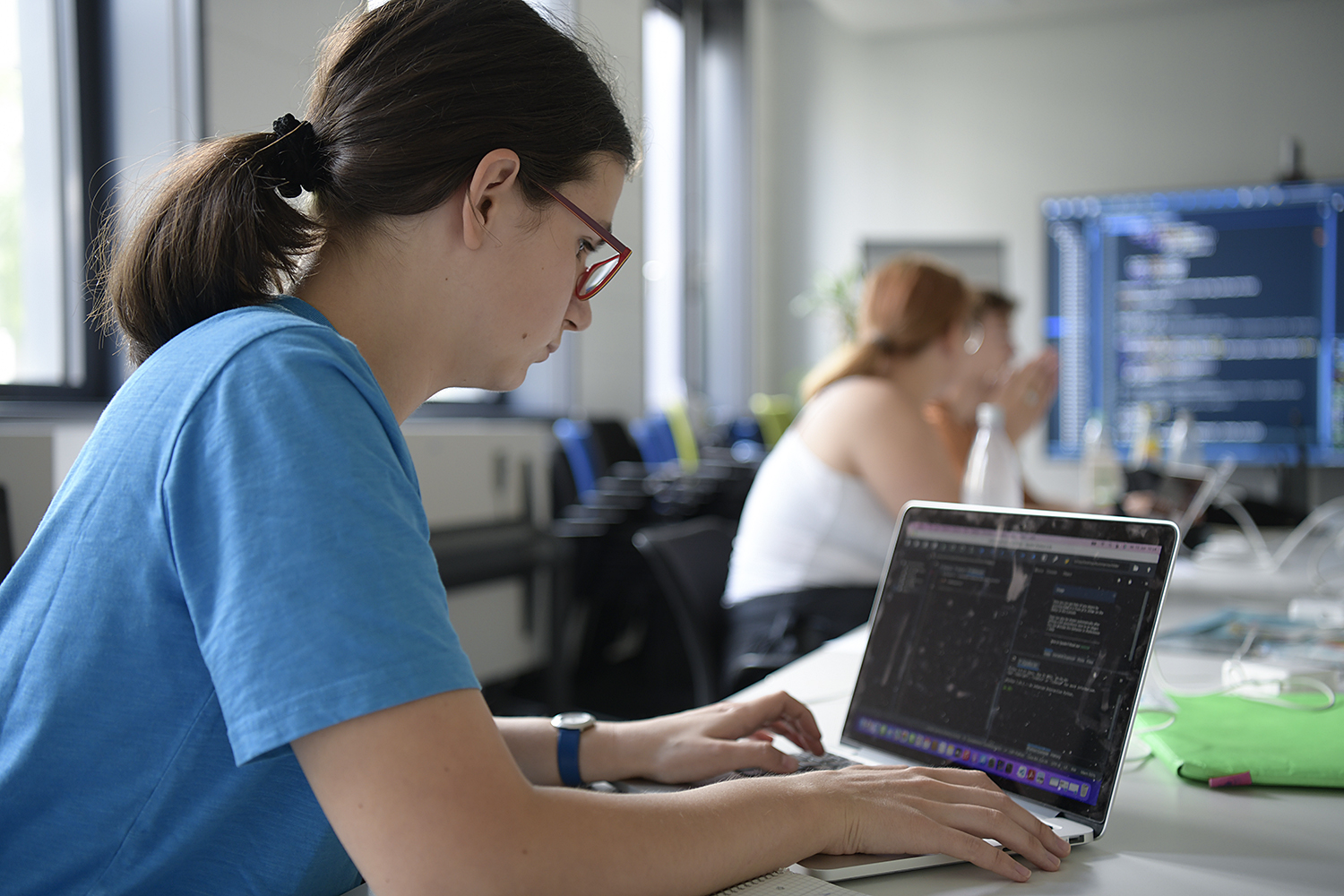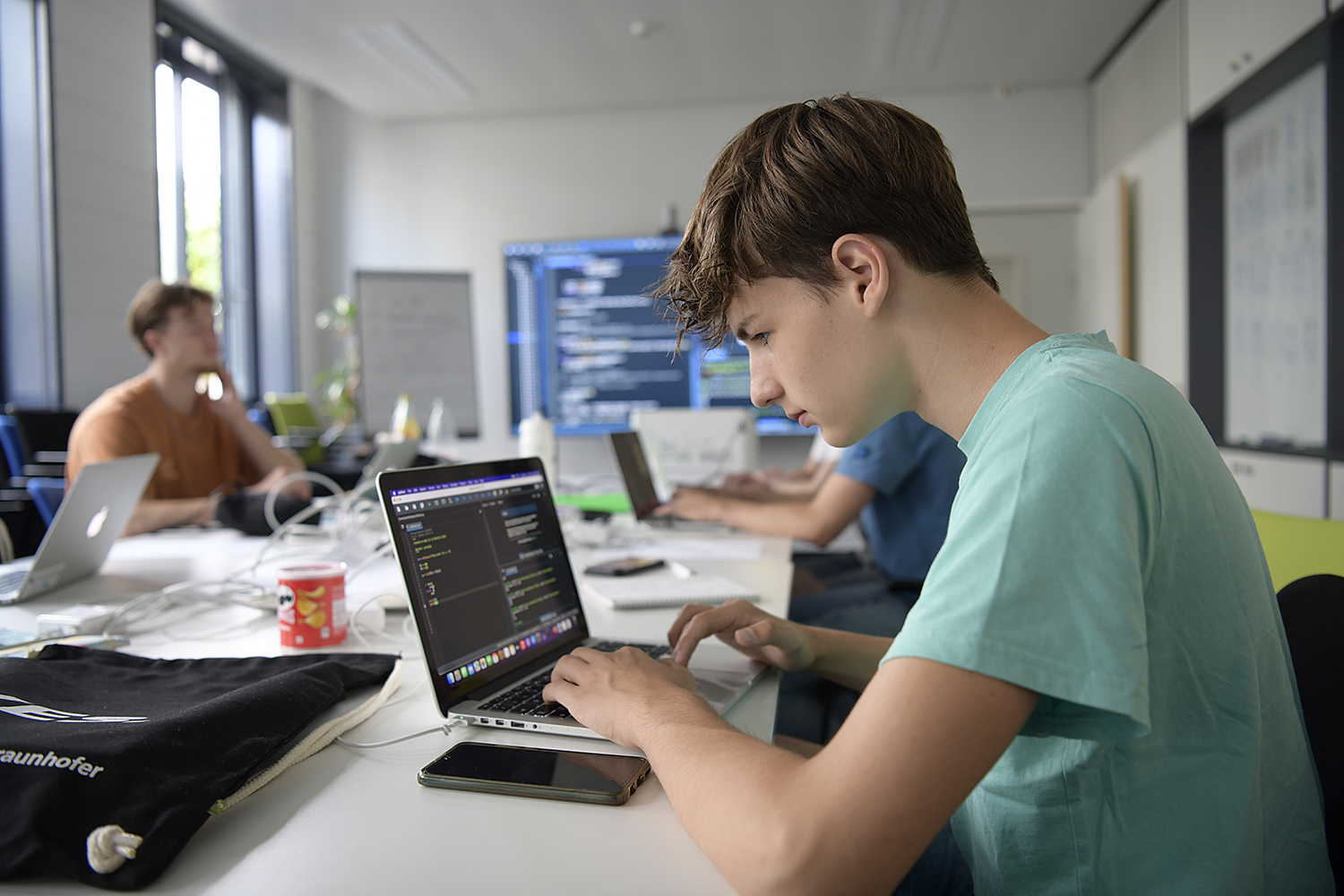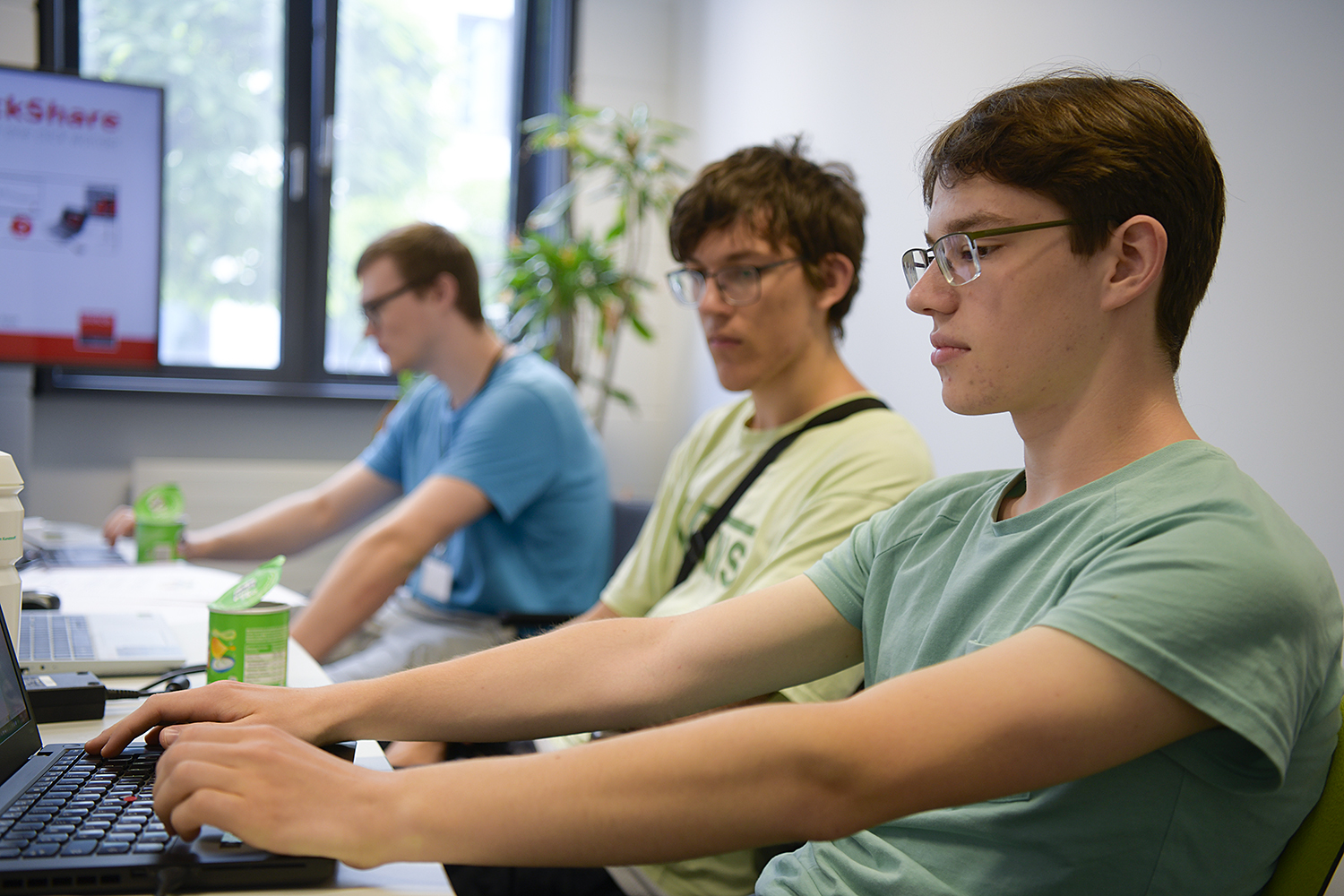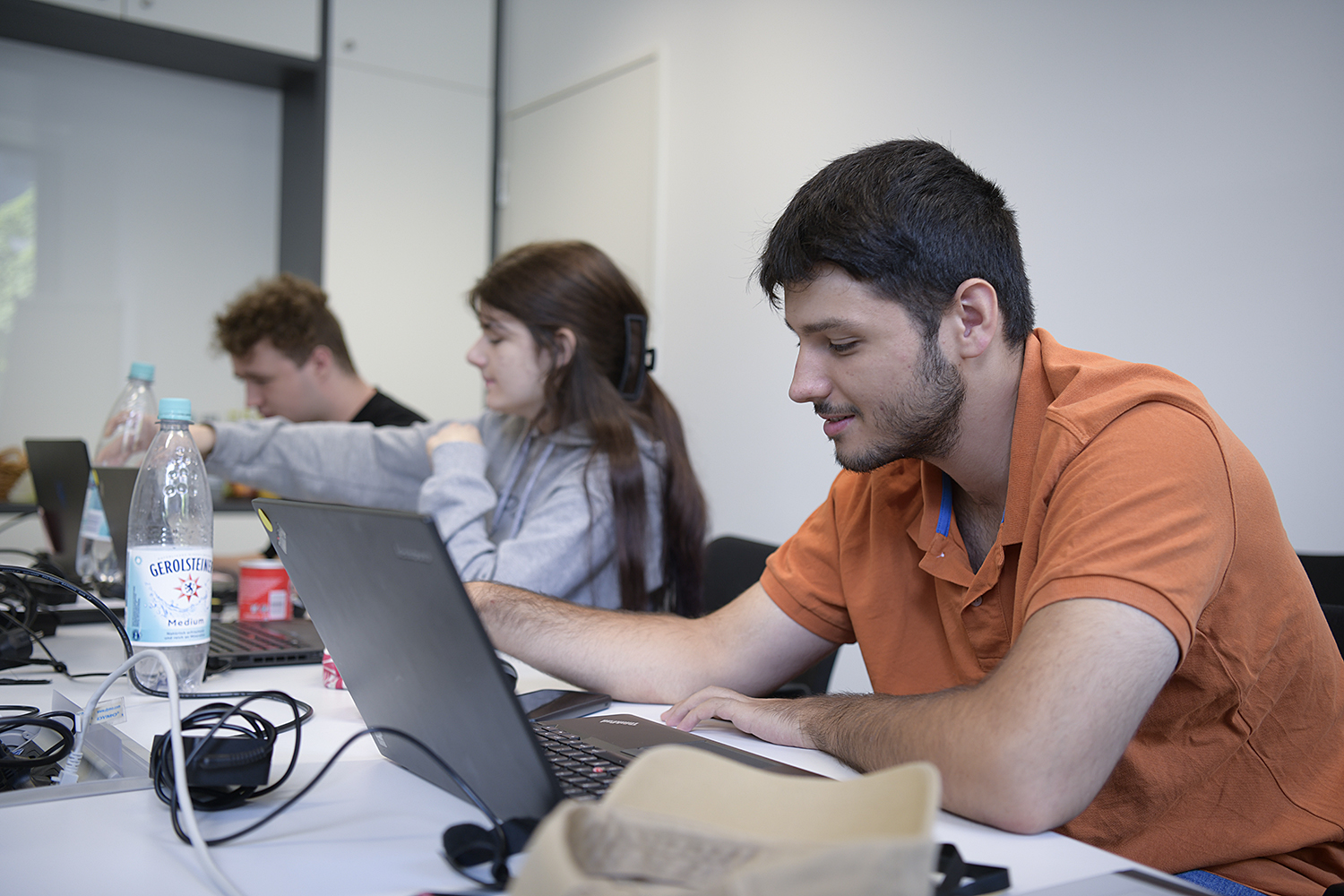What does the professional world of a mathematician look like and what is applied mathematics? Students from schools all over Rhineland-Palatinate can find out at our institute. Our Math Talent School is organized by the Felix Klein Center for Mathematics from July 10 to 14.
Students in grades eleven to thirteen work in teams on different problems using mathematical modeling and computer simulations. Before they start, the students choose one of the four projects they would most like to work on. The choices are:
- Eat and be eaten
- How valuable is my house?
- How the speed camera knows who you are
- Crisis: WLAN failure – How can the use of remaining access be made fair?
The results of the work are processed in the team and presented at the end of the Math Talent School as well as discussed together. In addition, the participants get various impressions of our institute and the department »Mathematics« of the University Kaiserslautern-Landau (RPTU). There, for example, they inform themselves about the study of mathematics.
On this page we collect impressions, statements, interviews, articles and photos of the Math Talent School 2023.
